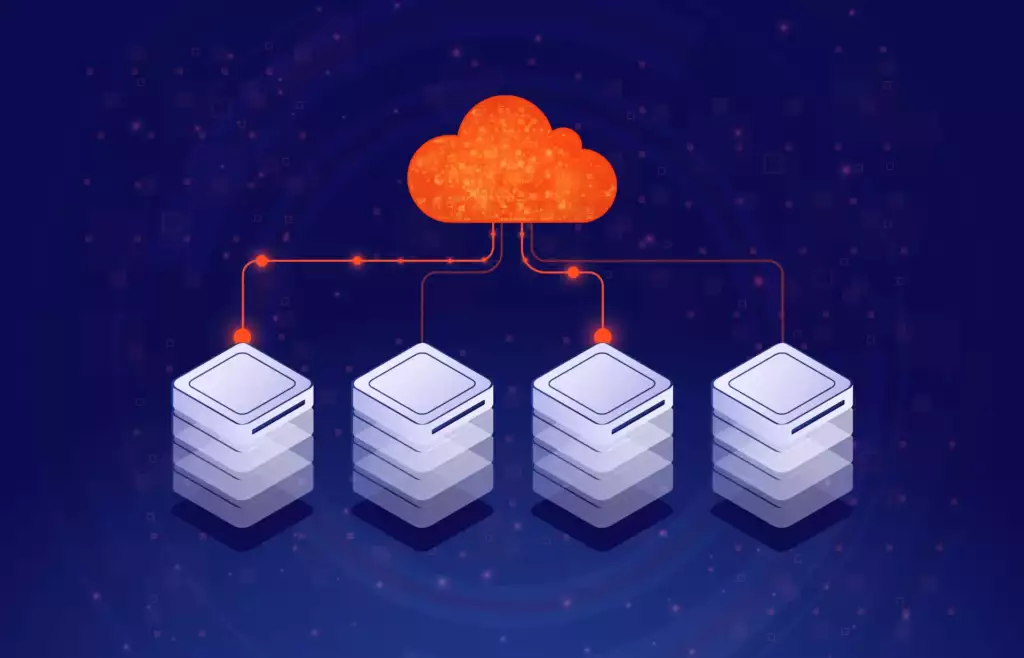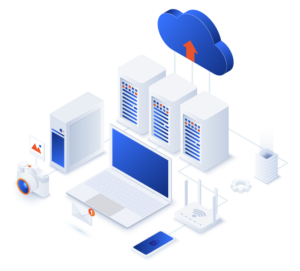Achieving the Best VPS Hosting with 2GB RAM: Balancing Performance and Resources

Virtual Private Server (VPS) hosting stands out as a favored option for individuals, businesses, and developers seeking an optimal blend of cost-effectiveness, performance, and autonomy. A crucial aspect to weigh when selecting a VPS plan revolves around the allocated RAM within the virtual environment.
Determining whether 2GB RAM suffices for VPS hosting lacks a simple answer. Delving into the roles of RAM in VPS performance, evaluating the types of applications and websites that can operate efficiently on 2GB RAM, considering scalability, and understanding potential limitations, we endeavor to present a comprehensive insight into the implications of opting for a VPS hosting plan with 2GB of RAM.
Jump To...
VPS Performance at the Role of RAM

Random Access Memory (RAM) plays a pivotal role in every computing setting, particularly in VPS hosting. It serves as a transient storage for the operating system and the currently active website or applications.
Insufficient RAM in a VPS may force the system to utilize slower disk space (page file), resulting in a decline in performance. Within the VPS context, RAM significantly impacts multitasking capacity, application responsiveness, and overall processing speed.
Websites Compatible with a 2GB RAM Virtual Private Server

The suitability of a 2GB RAM allocation for VPS relies heavily on the nature of the applications you plan to execute. For lightweight websites, blogs, and content management systems (CMS) with low to moderate traffic, 2GB RAM may prove adequate.
These application categories typically demand minimal memory and can operate seamlessly within a limited environment. Moreover, command-line utilities and compact databases can function smoothly on a VPS with 2GB RAM. Providers such as VPSServer also grant complete root access and exclusive resources even with a 2GB RAM configuration.
Consideration Factors
Sharing of Resources
Selecting a VPS hosting plan involves the distribution of resources among multiple virtual environments on a singular physical server. While 2GB RAM could meet your requirements, bear in mind that the collective server resources are distributed among other VPS servers. If adjacent VPS servers excessively utilize resources, it may affect the overall performance of your VPS.
System and Service Operations
Your VPS’s operating system choice and the services it runs directly influence RAM consumption. A lightweight Linux OS and minimal services demand less RAM, unlike resource-intensive applications such as Windows-based systems or web servers experiencing heavy traffic.
Scalability
VPS hosting’s noteworthy advantage lies in its seamless ability to scale resources to match your expanding requirements. If there’s an anticipated surge in website traffic or future plans to host more resource-intensive websites, it’s recommended to choose a hosting provider that simplifies upgrades to higher RAM plans.
Ensure the hosting service allows for flexible adjustments, providing you with the capability to meet increased demands without disruptions. This proactive approach ensures your VPS can efficiently accommodate growing needs, maintaining optimal performance and user experience.
Proficiency in Server Management
Your expertise in server management is crucial. Proficient skills in optimizing and overseeing resources empower you to effectively utilize a 2GB RAM allocation.
Effective resource allocation and routine system maintenance are key contributors to performance optimization.
Swap Space
In specific VPS setups, you have the option to allocate a section of disk storage as virtual memory, known as “swap.” This functionality helps mitigate the effects of limited physical RAM. However, it’s crucial to acknowledge that this disk-based memory operates at a significantly slower speed compared to actual RAM.
As a result, this speed difference may impact the overall system performance.
Limitations and Factors Affecting Performance
It’s vital to understand the constraints faced by a VPS equipped with only 2GB of RAM. While this allocation works well for lightweight applications, certain situations may induce performance bottlenecks. It’s essential to be vigilant in recognizing these scenarios to guarantee a smooth user experience.
Highly Trafficked Websites

Applications with substantial processing demands, such as video transcoding or complex data analytics, might face difficulties operating smoothly in a VPS equipped with only 2GB of RAM.
The inherent constraint in available memory can limit efficiency and responsiveness for tasks requiring abundant system resources.
What is the Adequate RAM for VPS Hosting?

Deciphering the optimal RAM size for your VPS hosting needs is pivotal, as it directly influences the functionality, stability, and scalability of your virtual environment. The response to the query “how much RAM is sufficient?” isn’t universal, as it hinges on various variables that collectively define your distinct requirements.
Aligning Hosting Resources with Applications

The primary consideration is the nature of your hosted applications or websites. Lightweight websites or applications with minimal traffic and basic functionalities may perform adequately with a modest RAM allocation, such as 1GB or 2GB.
These smaller RAM configurations can be cost-effective and suitable for personal blogs, static websites, or simple development projects where heavy computational demands are not prevalent.
Considering the Growth
Conversely, as your projects or websites evolve in complexity and popularity, the demand for additional RAM becomes more evident. Mid-range requirements, characterized by medium-sized websites, e-commerce platforms, and content management systems, may require RAM ranging from 4GB to 8GB.
This increase facilitates smoother multitasking, enhanced database performance, and improved handling of concurrent user requests.
Utilizing Resource-Intensive Applications

Resource-intensive applications, like video streaming, online gaming servers, or data analytics, demand a higher RAM threshold. These applications rely on significant memory for data processing, caching, and handling intricate calculations. In this context, a VPS equipped with 16GB or more of RAM might be considered essential, ensuring efficient operation without causing performance bottlenecks.
Fluctuation in Traffic
Moreover, the expected fluctuations in traffic volume significantly influence the decision on RAM allocation. Websites or applications anticipating a steady influx of visitors require additional RAM to uphold rapid response times. This is especially relevant for e-commerce platforms during peak shopping seasons or news websites encountering spikes in readership. Inadequate RAM in such scenarios may result in sluggish loading times, discouraging users and potentially tarnishing your online reputation.
Align RAM with Operating System Specifications
The choice of the operating system (OS) for your VPS is a crucial element in the RAM consideration. Various OS versions and distributions come with different memory requirements. Linux distributions are generally recognized for their efficient memory utilization, while Windows Server OS might require relatively more RAM for seamless operation. It’s advisable to allocate additional RAM if you opt for a Windows-based VPS.
Optimization and Allocation
Furthermore, your technical expertise and server management strategy influence the RAM decision. Skilled server administrators proficient in resource optimization can maximize available RAM through effective caching strategies, resource allocation, and regular maintenance. Conversely, less experienced administrators might choose higher RAM configurations to compensate for potential inefficiencies in resource management.
Considering the future growth trajectory is crucial. Opting for a VPS with slightly more RAM than your immediate requirements can provide room for scalability without requiring frequent upgrades. This proactive approach prevents disruptions to your services as your user base expands or your applications become more intricate.
Is 2GB of RAM suitable for hosting a web server?

Does 2GB of RAM suit smaller web projects with moderate traffic? It ensures functionality and decent load times under light workloads. Yet, factors must be weighed to decide if it’s ideal for a web server.
Effect of Website Characteristics on RAM Effectiveness
Acknowledge the influence of website type on the effectiveness of 2GB RAM. Dynamic sites with scripts, databases, and interactions might encounter challenges with limited 2GB RAM. Additional memory is crucial for handling continuous requests and data, preventing performance issues.
Selection of Web Server Software and its Influence on RAM Efficiency
Moreover, the selection of web server software can significantly impact the suitability of a 2GB RAM allocation. Lightweight web server solutions often demonstrate superior memory efficiency compared to more resource-intensive alternatives. Opting for lightweight server software can optimize the utilization of available memory, thereby enhancing the overall performance of the web server.
Boost RAM Efficiency with Effective Caching Strategies.
Caching strategies play a role in a 2GB RAM setup. Skillful caching eases memory strain by storing frequently accessed content, enhancing retrieval speed. This approach significantly improves user experience and mitigates the impact of limited RAM on performance.
Addressing Challenges During Traffic Surges

A 2GB RAM setup copes with consistent traffic but falters during sudden spikes. High traffic may result in memory allocation problems, leading to slow responses or interruptions. Websites anticipating frequent fluctuations should contemplate additional RAM or implement load balancing for sustained performance.
RAM Requirements for Demanding Applications
In situations with demanding applications, such as e-commerce platforms with extensive product databases or multimedia-rich websites, a 2GB RAM might not be sufficient. These resource-intensive applications require significant memory resources to accelerate the processing and delivery of content. Running such applications on a limited RAM framework may result in sluggishness, compromised user experiences, and potential bottlenecks in data processing.
Enhancing 2GB RAM Performance with Efficient Management
Maximizing a web server’s efficiency with 2GB of RAM requires smart management. Regular monitoring, fine-tuning server-side scripts and database queries, along with streamlined content delivery strategies, contribute to optimal resource utilization and enhanced overall performance.
Does 1GB suffice for VPS requirements?

Commencing with 1GB is adequate for fundamental online requirements and an ideal starting point for small-scale projects.
Nonetheless, if you predict expansion or expect increased traffic, it’s prudent to choose a VPS plan with additional resources. This ensures a seamless and consistent performance for your users.
1.) When 1GB Works: If you’re initiating a small blog, basic website, or personal remote workspace, 1GB is typically sufficient. It’s also budget-friendly, making it a great choice for those mindful of expenses.
2.) When 1GB Might Struggle: Conversely, when handling larger websites with abundant media, busy online shops, or applications with significant user traffic, relying solely on 1GB might result in slower performance. It could struggle under heavy loads, leading to delays or even crashes.
3.) Consider Other Resources: While RAM holds significance, consider other factors as well. The CPU, often termed the brain of your VPS, determines processing speed. Storage space influences the amount of information you can retain, and the speed of data transfer between your VPS and users is crucial too.
4.) Monitoring Usage: Regardless of your RAM quantity, monitor your VPS performance. Many providers offer tools to assess resource usage. If your RAM is consistently fully utilized, consider upgrading to a larger plan for optimal performance.
Wrapping it Up!

In the domain of VPS hosting, does selecting a 2GB RAM package strike a balance between performance and resources. This sweet spot caters to various needs, accommodating growing applications and medium-sized websites. With a larger capacity than more limited plans, it ensures smoother operation and improved handling of traffic peaks. Nevertheless, for substantial growth, monitoring resource usage and considering potential future scalability is crucial.
Frequently Asked Questions
Does a 2GB RAM VPS strike a balance between performance and resources? By ensuring seamless operation and responsiveness, it offers sufficient capacity to handle medium-sized websites and apps.
Can a 2GB RAM VPS effectively manage modest traffic spikes, making it suitable for expanding websites and apps? Nevertheless, consistently high traffic may necessitate additional resources.
Resources and speed from a 2GB RAM VPS prove advantageous for medium-sized websites, small ecommerce platforms, blogs, and continually growing applications.
While a 2GB RAM VPS can manage various tasks, optimal performance for resource-intensive applications, such as large databases, may necessitate additional RAM.
Do most VPS providers offer tools to monitor CPU, RAM, and storage consumption? Regular inspections ensure effective resource distribution.
Certainly, many providers allow scalability. You can upgrade your VPS package if your project demands additional resources as it evolves.
Factor in project complexity, expected traffic, and scalability. A 2GB VPS excels in performance and accommodates expansion, though a 1GB VPS is budget-friendly.




